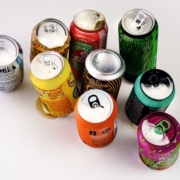What’s the deal with the Plastic Soup again?
March 15 2024 That’s what readers of news site nu.nl on their comment platform Nujij were wondering. In a recent […]
15 October 2020
As a result of the climate crisis, low oil prices and the pandemic, Shell is suffering a historic loss. In response, the oil and gas company is reducing the dividend for shareholders and cutting 10% of jobs.
To overcome the biggest crisis in its history, Shell is gambling on increased production of new plastic. But that lifebuoy is as leaky as a basket.
While the oil and gas taps are gradually being closed, and COVID-19 is causing a sharp drop in demand, Shell has invested billions of dollars in the production of new plastic. Shell is certainly not the only one; all Big Oil is gambling on plastics as a growth market where profits can be made. From ethane, a cheap by-product of shale gas, ethylene is made, a raw plastic material. This new (virgin) plastic will flood the market.
But ‘Plastic will not save the oil industry’, Carbon Track’s financial experts say. They have explained why the growth of plastic will flatten out. According to the report, the world is reacting to the plastic crisis:
The report sets out how these developments have harmed the expectations of Shell and consorts. Besides, billions of investments will result in a surplus of plastic, which will depress prices and therefore, profit margins. The result is stranded assets (investments that become worthless) and a recycling sector that cannot compete at dumping prices.
The oil industry cannot continue as before. According to the report, there are already four developments or issues that the industry needs to take into account:
Last summer, the Lower House asked the Cabinet whether it was prepared to ‘formulate (and comply with) policy to prevent investments in the production of new plastic’ and also to ‘call on Shell to sign the European Plastic Pact after all’. Companies signing the European Plastic Pact are committed voluntarily to reducing the use of plastic and promoting recycling. The answer shows that there is no such willingness at all. The State Secretary does not get any further than the non-committal ‘I will continue to bring the European Plastic Pact and the call for it to be signed to Shell’s attention’.
Investors know better. There is an ever-increasing risk of investing in plastic and shale gas. Also, these investments are not in line with the United Nations’ Sustainable Development Goals (SDGs). Banks and insurers will be held to account for investments in plastic and shale gas. Private investors, in turn, will not want to run any risks and will no longer invest their money in oil, gas and plastic. As early as 2018, Moody’s, the authoritative investment advisory firm, warned that any measures in the pipeline to curb plastic packaging would adversely affect the industry’s creditworthiness.
In response to the oil crisis, Shell’s top executive Van Beurden announced sustainability. As an energy company, Shell will invest much more in sustainable energy sources. But how long will it take before the multinational announces to abandon plastic production?
March 15 2024 That’s what readers of news site nu.nl on their comment platform Nujij were wondering. In a recent […]
The first Impact Fair is Europe’s largest Impact Experience. An interactive ‘immersive’ experience of impactful examples.
The waste-export to countries outside of the EU has been restricted The Netherlands is against a carpet ban on shipping of plastic waste.
The waste-export to countries outside of the EU has been restricted The Netherlands is against a carpet ban on shipping of plastic waste.

 EnvironMenstrual Week: menstrual products pollute
EnvironMenstrual Week: menstrual products pollute